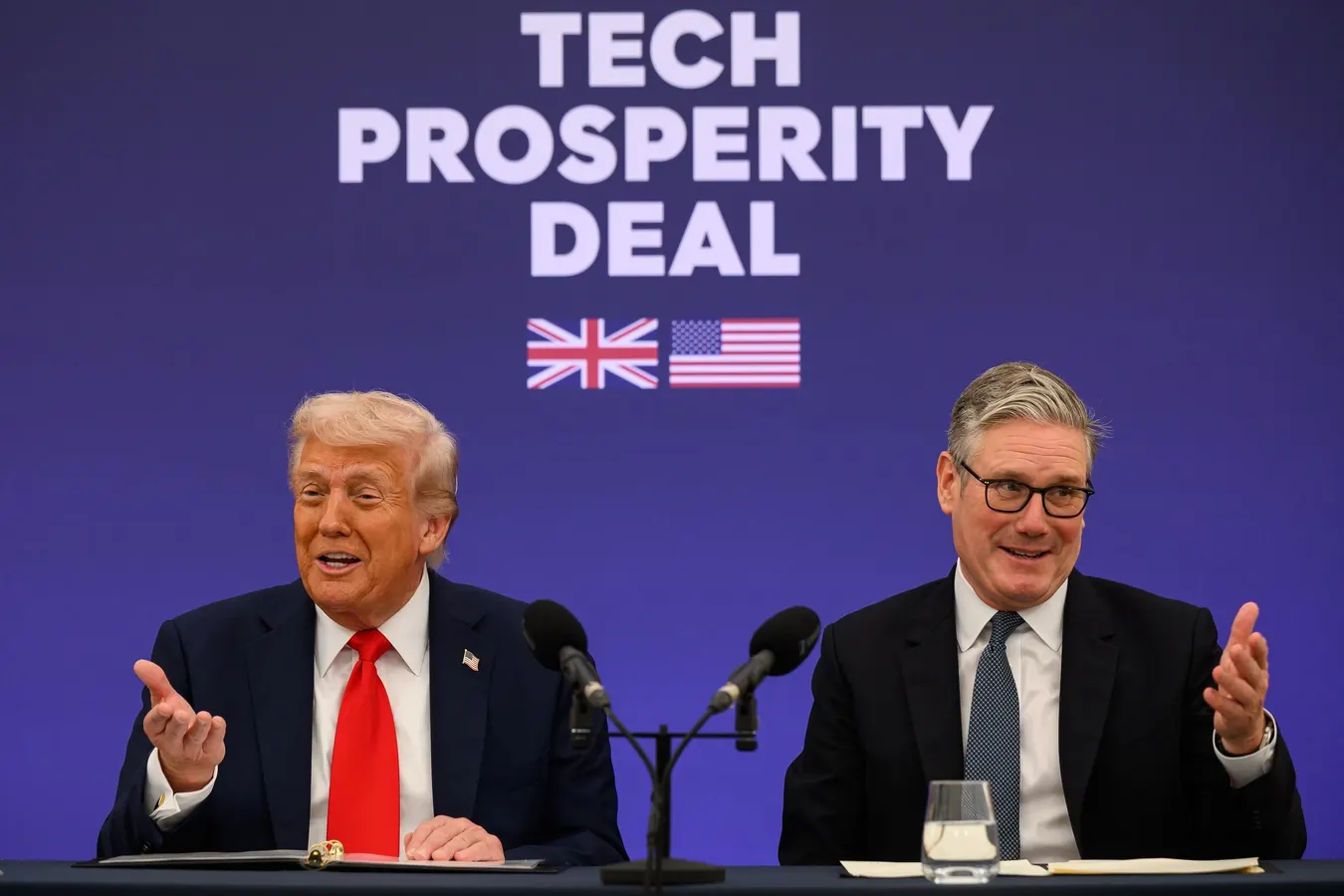By Bruntwood Scitech,Contributor,Kath Mackay
Copyright forbes

Last month, Prime Minister Kier Starmer welcomed the President and First Lady of the United States for an unprecedented second UK state visit. A key outcome of this trip – the US-UK Technology Prosperity Deal, whereby the two governments will deepen their cooperation across a range of science and technology areas.
The US is a dominant force in technological innovation and home to the world’s largest tech companies and most advanced AI capabilities. For the UK, partnering with US tech giants offers access to cutting-edge infrastructure, research capabilities and the kind of scale that’s difficult to achieve independently.
That’s why this new deal is far more than just a symbolic diplomatic gesture, it’s infrastructure investment that’ll lay the foundations to supercharge our innovation economy in the next decade, with a focus on AI, biotech and quantum technologies.
The scale of the investment – reportedly a combined £150 billion for AI infrastructure and joint research schemes – underscores just how critical new data centres, chip manufacturing and R&D have become in determining which economies will flourish and which will be left behind. AI development is reshaping global value chains and fostering new economic and social structures – that is to say, the countries that build and control their own infrastructure will attract talent and companies, set the rules and capture more of the profits. If the UK is to continue to strengthen its position in the global innovation economy, we need to make sure that investment translates into tangible innovation and economic growth.
Can foreign investment work on UK terms?
While the reception to the deal has been overwhelmingly positive – and rightly so – paying attention to the detail will be crucial, and already concerns have been raised.
Undoubtedly, foreign investment plays a critical role in accelerating innovation. Attracting foreign direct investment (FDI) not only enables greater capital expenditure on R&D, it also fuels credibility and serves as a tool to ensure economic confidence and diversification, creating high-skilled jobs and anchoring the UK global economy.
MORE FOR YOU
All of this is great news as we prepare to welcome a new wave of opportunity and investment in cutting-edge technology. However, there remain concerns that profits risk flowing abroad. Some critics suggest that the UK is tying itself too closely to the US and is trading its agency and security in return for a boost in investment and “false promise of over-the-shelf sovereignty”2. To be in control of one’s own digital infrastructure – be that data centres, AI systems or any technology used for facilitating digital life – is an essential requirement to become a leader in AI.
Following the unprecedented wave of investment from the US, UK cloud provider Civo has called for a reassessment of the UK’s approach to innovation. It has published a report designed to ensure FDI complements domestic innovation, however, makes it clear that infrastructure, talent and intellectual property must remain under UK stewardship3. The government will need to strike the right balance between investment and sacrificing data sovereignty if it’s to make this deal a success.
Don’t put all your eggs in one basket
The current focus on foreign investment into AI and digital innovation is vital, but the UK must make sure that it doesn’t take its eye off the ball when it comes to securing investment for our broad spectrum of high value, high R&D spending innovation sectors. Huge growth sectors like life sciences and advanced manufacturing will of course see indirect benefit from greater investment into AI, but without dedicated capital or support, we risk significant losses that would be far harder to recover than gains are to achieve.
Recent updates from both AstraZeneca and Merck – with the former opting to list a significant portion of its shares on the New York Stock Exchange, and the latter rowing back on a plan to invest £1 billion in the UK – points to a wider issue with appetite for investment in UK life sciences. While much of the challenge comes down to the controversial issue of drug pricing, there are less contentious things we can be doing to reverse this trend, principally by unlocking patient capital, streamlining regulation and fostering stronger public-private partnerships. We also need to double down on the development of city-wide innovation ecosystems – like those led by Bruntwood SciTech in Manchester, Birmingham, Cheshire, Leeds and Cambridge – which demonstrate how targeted investment, long-term collaboration and co-location with research and NHS institutions can create globally competitive clusters from the ground up.
The US-UK Technology Prosperity Deal demonstrates what’s possible when the UK leverages its unique combination of world-class talent, regional innovation clusters and strategic international partnerships. However, this moment of opportunity also carries responsibility.
The UK’s global credibility as an innovation leader depends on maintaining momentum across all sectors, from quantum computing to life sciences. It will also need to set its own digital rules to ensure the transformative investments don’t see the nation lose autonomy – and profits – to the US. With the right balance of continued government support, strategic foreign investment and regional development, the UK is uniquely positioned to lead in the global innovation economy. The question isn’t whether we have the infrastructure, talent or regional strength to compete – it’s whether we can maintain the focus and ambition to fully realise that potential.
1. ‘Impossible hill to climb’: US clouds crush European competition on their home turf
2. Starmer’s tech deal is a national security gamble – and ties us too closely to Trump
3. Government urged to prioritise UK tech amid US investment surge
Editorial StandardsReprints & Permissions